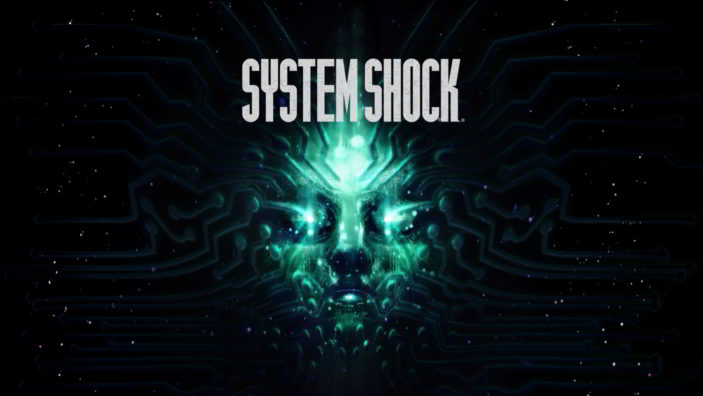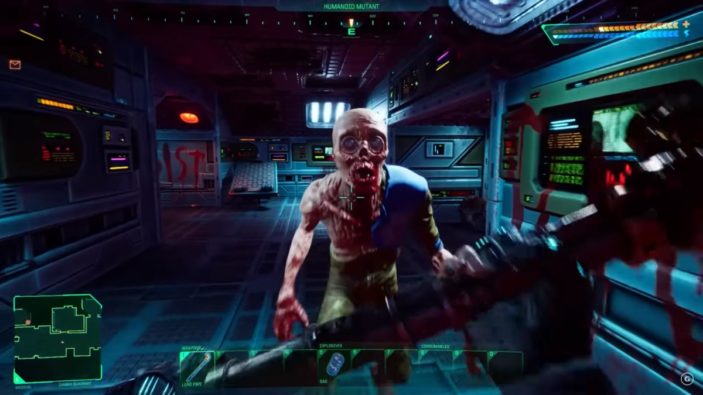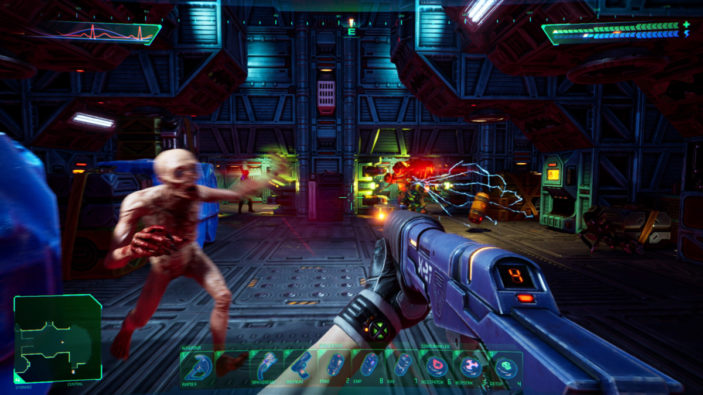
The original System Shock was admittedly released the year I was born, but even though I’ve had plenty of time over the past 28 years, I had never gotten around to playing it until only a few years ago. I had understood its impact as a spiritual predecessor to one of my favourite games of all time in Bioshock, and appreciated it for its nuanced storytelling. But upon playing it, I have to admit that it just feels a little too dated by today’s standards. Visuals aside, the gameplay felt clunky and exploration and overall progression generally hinge upon small notes in passing that if left unnoticed, virtually leave you perpetually lost.
Now that we’ve gotten that out of the way, I have to say it; System Shock’s remake is without a doubt one of the biggest surprises of 2023. Sure, there’s a solid foundation to build upon, which this remake follows rather closely, but its unique yet stunning visuals and improved gameplay only broaden and strengthen System Shock’s reach.
Trapped Inside
System Shock’s remake follows closely in the footsteps of the original’s story. You are only referred to as ‘The Hacker’ or ‘Employee #2-4601’ (we see you, Les Misérables reference) as you are taken to the Citadel Station and charged with stealing vital information from a rather evil TriOptimum Corporation. However, a deal is struck between you and the company CEO Edward Diego, in which all theft charges would be dropped if you were to secretly hack into Citadel Station’s artificial intelligence system named SHODAN. The less I say about the story beyond this point the better. As all hell immediately breaks loose, you are tasked with escaping the station and finding out the secrets behind SHODAN’s initial hacking.
It’s admittedly great stuff, as your journey through the Citadel Station is packed with various routes and avenues forward, in which you’ll discover notes and key items to uncover the truth. Along the way, SHODAN will interact with you occasionally, infecting the station’s facilities and attempting to stop you at every turn. While I wish these encounters were more frequent, make no mistake; SHODAN is fantastic, and still quite confidently one of the most iconic and menacing villains ever featured in a video game. Dialogue is creepy yet insightful, as you question the implications of your own actions, blurring the lines of right and wrong. Overall, the story is well-paced, even if it requires you to keep track of information logs found in the environment.

Many aspects of information like door codes, objectives and locations of interest, are tucked away in voice logs and journal entries, that if missed, make progression a real slog. In the early hours of the game, I found myself incredibly lost as I searched for a single door code. I only later realised that I had picked up a journal entry from a dead doctor, that contained the code to this door. While it sounds nice and simple in hindsight, you will need to refer to these documents and resources regularly in order to gain the context required for progression.
In that respect, System Shock can feel a little dated. There once was a time when this felt normal. Games rarely told you what to do and where to go, and it was all part of the fun. While I would have appreciated some sort of linear, story-focused mode where objectives are highlighted on the map and player HUD, there’s nothing necessarily wrong with remaining faithful to something that has come before. That being said, it also feels like the potential for pacing and exploration can get a little lost in translation when you’re circling the same area for hours because you missed a sliver of information on where to go next.
Hiding in These Halls
While the original System Shock’s labyrinthine corridors and hallways made for some interesting explorations and discoveries, it never really felt confident enough to parade around as an action title. This time around, the remake feels a little more at home thanks to some updated mechanics that allow combat to feel functional, punchy and ultimately satisfying. You’ll be able to utilise a range of weapons from pistols and rifles, to grenades and melee weapons, each of which feels useful and at times, treasured. You’ll usually run across a number of infected enemies, cyborgs and mutants at any given time, which can present a serious challenge when advancing in numbers. You’ll also take on dangerous security systems like turrets and cameras which oetn hided in plain sight, as you take them down to weaken SHODAN’s defences.

Traversing between objectives comes with its fair share of challenges outside of combat. Along the way, you’ll need to complete a number of puzzles for the sake of progressions, which are at times, excruciatingly difficult. The junction box puzzles require you to align conduits in a specific path for power to carry through, and they’re simply ridiculous from the early hours. There’s even a game of Chess you can play against AI, which basically roasts you for not knowing how to play.
Another returning aspect of System Shock is its Cyberspace encounters. These encounters play out in virtual reality like an open-space 3D shooter. I can admire its inclusion for the sake of authenticity, but it just feels mechanically awkward to fly around this open space, bloating the level of challenge to a frustrating degree. Thankfully, it’s worth noting here that the difficulty can be adjusted for various aspects of the experience, like combat, puzzles, story missions and this Cyberspace mode. Crank that last option all the way down, and thank me later.
Look and Feel
Thanks to some fantastic sound design, both encounters and exploration feel incredibly tense and creepy. Enemies grunt and yell, while every corridor and room seems to come with its own squeak and crack, adding to that foreboding sense of atmosphere. Weapons also sound fantastic, each with its own unique sound and effects.

Visually, System Shock is also a delight. While the original was fantastic for its time, the remake seems to blend pixel-like textures with some seriously impressive lighting. I’ve never seen this blend of visuals outside of something like Minecraft. But even then, this still manages to feel incredibly polished and fresh. It’s also worth noting here that everything runs at an even clip, as I rarely encountered any bugs and crashes on PC.
Final Thoughts
It’s games like this that constantly walk the line between nostalgia and progression. In many respects, System Shock is ultimately a faithful remake, that captures the elegance and powerful nature of the original. It brings back exactly what works, like the arguably integral SHODAN and the intricate nature of the Citadel Station, while improving on things that haven’t aged well, like combat. The open-ended nature of traversal can make things feel a little dated as it can rely too heavily on context, and puzzles can feel a little too hard at times; even if it does its best to allow you to adjust the experience at every turn.
Those who haven’t played the original should certainly jump in for a well-paced action romp. But I’m sure fans of the original will love this version of System Shock for its faithful nature and a fresh coat of paint.
FOUR STARS (OUT OF FIVE)
Highlights: Solid combat; Excellent antagonist returns; Pretty blend of next-gen lighting and old-school textures
Lowlights: Puzzles are tough; Overall progression requires specific attention to detail
Developer: Nightdive Studios
Publisher: Prime Matter
Platforms: PlayStation 5, PlayStation 4 Xbox Series X/S, Xbox One, Windows PC, Linux, MacOS
Available: Now
Review conducted on PC via Steam with a pre-release code provided by the publisher.
